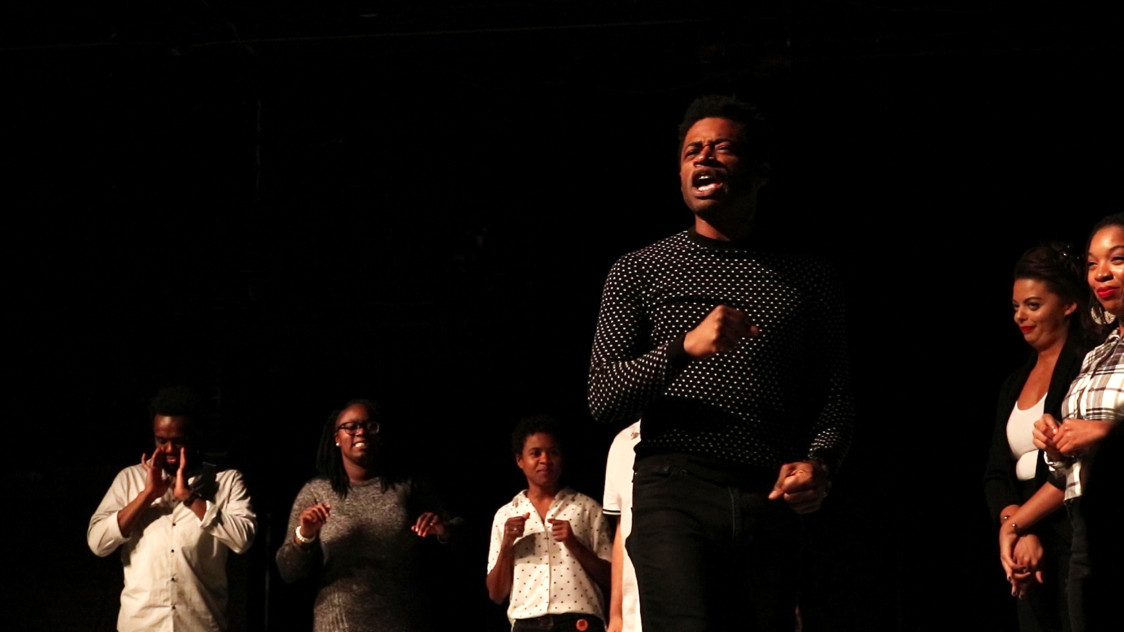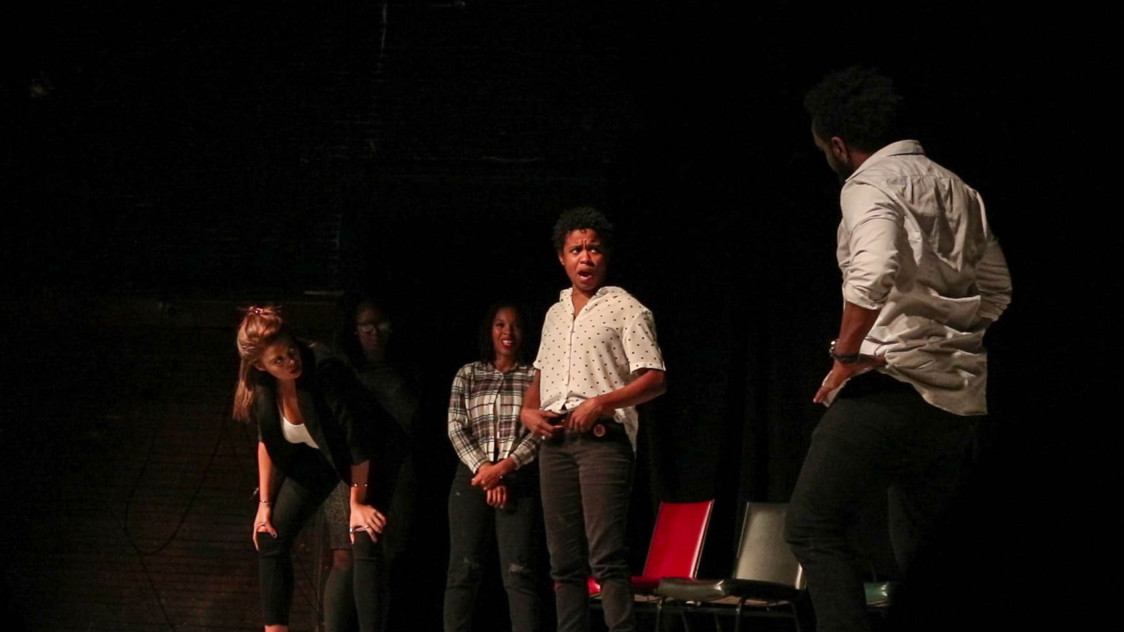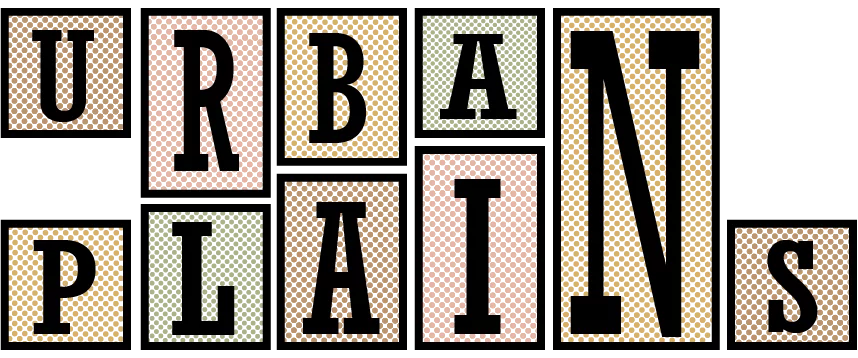
“Can I get a sex-eeee ah-men?”
That’s Kory LaQuess Pullam. He’s one of the cast members of Minneapolis’s Blackout Comedy troupe. He’s on stage waving his arms, flailing, and praising the most luscious version of the savior possible. And the audience is right there with him. They yell out a long, massive amen that’s parts Saturday night drunkenness and Sunday morning sermon.
“That’s a sexy amen, you sexy motherf—–s.”
That’s when things get crazy. The improvised church sermon slowly turns into a musical about voting. Pullam belts out, in a beautiful baritone voice, the importance of registering to vote. The audience laughs and claps along. It’s downright magical.
This is nothing new for a Blackout Comedy performance. The all-black Minneapolis-based improv troupe isn’t like other comedy groups. Sure, there’s jokes and improv with witty punchlines, but there’s also serious conversations about social issues, random bits of poetry, and banging hip-hop music.
“It’s a place where we as improvisers and comedians can have a space on stage to speak our voices,” says Blackout member Duck Washington, “while at the same time address things that you just don’t see addressed on improv stages ever.”
Blackout started in 2015 as a small improv troupe planning to perform only a couple shows. But after selling out their first two performances at the Phoenix Theater in Minneapolis’ Uptown neighborhood —think a cross between Portland and Fargo—the founders decided they needed to keep going. They continued to hold performances every month. They started to gain more members and followers. Things were great.
But then the members of Blackout started to notice something. After seven months performing, they realized their attendees were mostly white. They wanted to reach a more diverse crowd, to connect with and represent their audiences, as well as provide a platform for people of color to speak their mind.
“People always complain about people of color not going to see theater, but that’s because they don’t see things that represent them on stage. I think we are starting to hit that more,” says co-founder Joy Dolo. “We started going to high schools and having workshops and trying to bring more people from the outside into the inner circle.”
And they also moved from Uptown to the Mixed Blood Theater, which is a multiracial theater focusing on injustices and inequities and is located deeper in the city. The result was more diverse audiences and a larger following. By providing more access for people to see their shows, Blackout wanted to break down the stereotype of a typical comedy group. As Washington describes, when you think of improv you think of four white guys on a stage talking about farts. Blackout shows by contrast represent unapologetic blackness and combine comedy and social issues, letting their audience members embrace difficult topics through humor and comradery.
“When we do have those serious conversations, you can find the humor within them because it’s like, ‘Oh this shit happened and that is f—-d up. This is the f—-n’ world we’re living in, right?’” Dolo says. “And it’s not levity, but there is a humor to it because it is so ridiculous.”
Even better, audience members have the chance to drive those conversations through the “swag hat” segment. A large black cowboy hat, the “swag hat” invites audience members to write down a suggestion for Blackout. One is selected on the spot. The topics can vary. Sometimes it’s stuff like registering to vote. Other nights it’s Jamar Clark, a 24-year-old African-American who was shot and killed by police officers in North Minneapolis on Nov. 15, 2015. Or the acquittal of police officer Jeronimo Yanez, who shot and killed 32-year-old Philando Castile in Saint Paul on July 6, 2016. Those nights can be difficult.
“It’s not tough to talk about. It’s just a hard subject,” Dolo says. “And so we are literally in front of this crowd of mostly white people talking to each other about our feelings around this topic.”
But these shows can also be the most powerful. They create a space for people to grieve and have difficult conversations about how they’re feeling. If Blackout members don’t want to improvise on a certain topic they can just put it back into the hat, but they’re at least able to talk about it and encourage others to talk about it, too.
“I think comedy is a really valuable tool in getting people to approach difficult subjects in a way that is more accessible and keeps them from throwing up walls and barriers,” Washington says. “I think Blackout mixes both comedy and social issues that lets our audience embrace difficult topics in a way that I don’t think they normally would in most performance forms.”
Ultimately, that leaves audiences with a new perspective.
“What we want the Blackout audience to take away from the show is that the black experience is not all the same,” Dolo says. “That we are all different human beings, that have our own environments and our own backgrounds that we come from and we bring that to the stage. We also have feelings about all of these things that are happening in the world and happening in our city and we have something to say about it.”
Blackout Comedy holds performances every third Monday of the month at Mixed Blood Theater in Minneapolis, MN. To learn more, visit www.blackoutcomedy.org.


